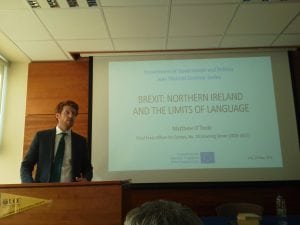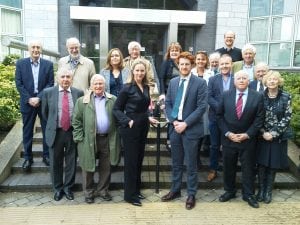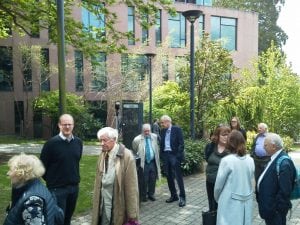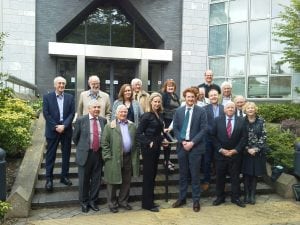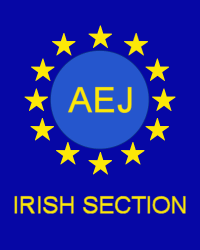By Matthew O’ Toole
Do you remember where you were when you found out the UK had voted to leave the European Union? I was lying on a camp bed, temporarily installed in a meeting room in 10 Downing Street.
I heard the voice of David Cameron, who would shortly resign as prime minister. He was outside the door, sombrely telling someone on his mobile that it was “going to be a long night”.
He was at least right about that. Examined with the benefit of more than a year’s hindsight, that night feels just as long – as epochal – as it did at the time. Politically and personally.
That morning, Downing Street was Ground Zero in the explosion of an economic and political order that had lasted decades.
And I had my own unpleasant sensation: that the terms of my citizenship had been altered without my consent.
Even more surreal was that I had been helping to co-ordinate the civil service’s communications effort in the run-up to the referendum – until the beginning of the final pre-election “purdah” period, when official government support stopped.
My job was to ensure the Whitehall press team, including our own in Downing Street, successfully executed a media campaign to support a Remain vote.
I had become known for lecturing everyone in the building about the possible consequences for Ireland (the entire island) of a Leave vote, and lobbying for greater prominence to be given to the issue.
I felt like a character in a bad movie. A crude device placed in the script to foreshadow a major event. I personified why it was difficult to explain Brexit’s Ireland’s problem: it was as difficult as explaining myself and the place I come from.
I am Irish, and hold citizenship accordingly. I am also Northern Irish – though that complements rather than lessens my primary identity.
And while I will never feel British the way an Orangeman does, I have lived and worked almost entirely in the UK.
It is, in a complicated way, my country too. I felt admiration and affection for a place mature enough to have people like me working at the centre of its government.
I travelled on an Irish passport to do British prime ministerial business. No one batted an eyelid.
That accommodated complexity was underpinned by the common membership of a European political union by two states that had once been one state, and had spent much of the previous century contentiously working out their relationship with one another.
And that, as you know, is to put it mildly.
Coming from Northern Ireland, the shared problem of both these states, a place where we are still fighting the Williamite War of the 17th century – which was of course a pan-European conflict – I understood the theory that the EU had underpinned our peace.
Now I was getting a lesson in the practice.
Being removed forcibly from a broader European context was dismaying. Not because I idolised Jean Claude Juncker or kept framed judgments of the European Court next to my bed. Because I felt instinctively that Europe had something to do with accommodating people like me. And much more importantly, part of accommodating the troubled place I came from.
This instinct was not shared by a majority of UK voters.
That morning in Downing Street, I felt a need to assert my difference, my Irish and my European citizenship, in response to the assertion of difference and nationality by English voters. I was almost caustic when talking to my English colleagues.
How sad that was: it instantly separated me from the people next to me – whether they were Remain or Leave supporters. The effect was not unlike the assertions of separation that hang from flagposts across Northern Ireland.
(Matt O’ Toole was a former press advisor to British Prime Minister David Cameron. This article first appeared in The Irish Times)